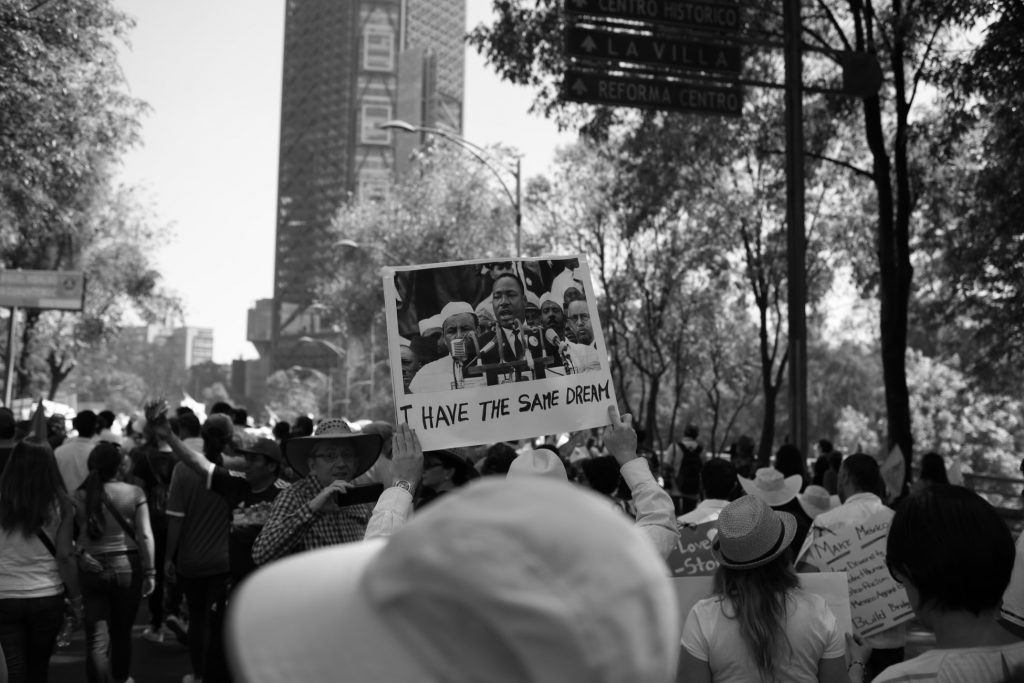
This week we celebrate the life and legacy of Dr. Martin Luther King Jr., whose teachings have often been beacons of light for our sector. As we transition into something resembling hope and renewal with this incoming presidential administration, I encourage us to reflect on the words Dr. King wrote in his Letter from a Birmingham Jail, where he warned of the “white moderate” being the biggest barrier toward social justice. He said:
“I must confess that over the past few years I have been gravely disappointed with the white moderate. I have almost reached the regrettable conclusion that the Negro’s great stumbling block in his stride toward freedom is not the White Citizen’s Counciler or the Ku Klux Klanner, but the white moderate, who is more devoted to ‘order’ than to justice; who prefers a negative peace which is the absence of tension to a positive peace which is the presence of justice; who constantly says: ‘I agree with you in the goal you seek, but I cannot agree with your methods of direct action’; who paternalistically believes he can set the timetable for another man’s freedom; who lives by a mythical concept of time and who constantly advises the Negro to wait for a ‘more convenient season.’ Shallow understanding from people of good will is more frustrating than absolute misunderstanding from people of ill will. Lukewarm acceptance is much more bewildering than outright rejection.”
I had written about this earlier, quoting the same passage, but I think it’s important we explore it further. Regrettably, nonprofit and philanthropy have in many ways become one giant white moderate sector. It is filled with good people who want to advance justice and help create an equitable society, yet we often get in our own way. We may have the same dreams as MLK, but so many of our good intentions serve to further the very injustice we claim to be fighting.
Here are a few ways you or your organization or foundation may be perpetuating this sort of well-meaning white moderation that’s preventing progress. This list, aggregated from colleagues across the sector, is not comprehensive. Also, all of us, including people of color, are prone to many of these because this is what we have been taught. We all need to constantly examine ourselves and make adjustments:
- You call for unity and for people to get along after violent white supremacist attacks, such as the one at the Capitol
- You steer away from publicly condemning white supremacy, racism, fascism, etc. because that might affect your funding
- You center the feelings of white donors and avoid anything that could make them uncomfortable
- You encourage people to be more “civil” or to use a “respectful tone” when having conversations about race and other challenging subjects
- You avoid anything that you think may be too “political”
- You are more worried about affecting your org’s reputation or upsetting team dynamics than you are at the inequity of pay and power allocated to Black, Indigenous, women, LGBTQIA+, disabled people, and other marginalized folks
- You strive to create “objective” processes for grants, jobs, etc., believing that that would ensure those with the most merit would be selected.
- You use white-people-determined standards such as academic writing, formal credentials, “articulate” speech, and “professional” personal appearance to judge people and organizations’ intelligence and effectiveness, which often rewards white men and white-led orgs
- You believe it’s more important to hoard resources for the future than to spend out more to effectively address current injustice
- You avoid race to focus on class as the basis of so much of the injustice in the world
- You make major decisions, such as grant selections, on your timeline and what’s convenient for you or the rich people on your board
- You support spending significant time and money to find solutions when marginalized communities have already told you the solutions multiple times
- You help marginalized people and organizations survive and compete in inequitable systems instead of working with them to dismantle those systems
- You allow racist, sexist, white supremacist, and other hateful views to have airtime for the sake of “diversity of thoughts/perspectives” or “equal time”
- You dismiss people’s actions to advance social justice if they’re not done through the “right” and “proper” channels
- You spend more energy comforting the privileged when their privilege is challenged and they’re upset than you do to address the injustice suffered by racialized and marginalized folks
- You prioritize costs over equity, for example going with the cheapest vendors/contractors than intentionally hiring women- and BIPOC-owned businesses
- You play “Devil’s Advocate” when activists and organizers bring up solutions that may actually lead to radical changes
- You say racialized and marginalized people complain too much and that they don’t offer enough solutions
- You act on the belief that the potentially equitable ends justify the inequitable means you may use to get there, for example not paying interns or not providing disabled people fair wages
- You believe in radical changes in theory but you think people should be pragmatic and incremental in their approach.
There’s plenty more. Please add in the comment section. And feel free to disagree. This week, and the rest of 2021, it’s not good enough just to post inspiring quotes by MLK. We all need to reexamine our actions to see which ones align with equity and justice, and fix the stuff we do that don’t.

